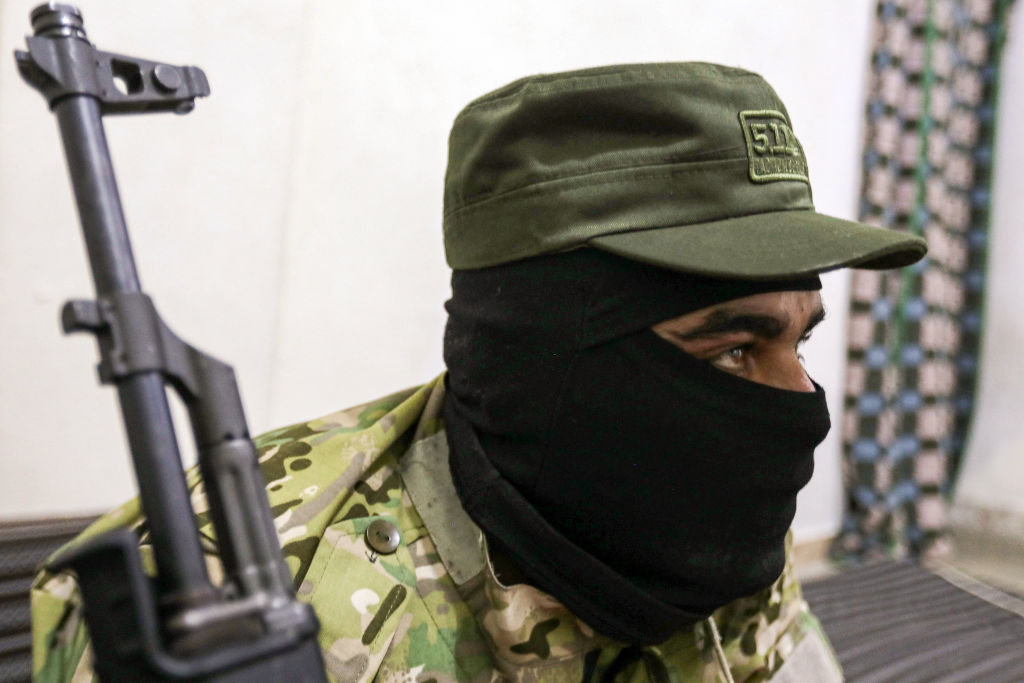ADF STAFF
A few kilometers from the border between Turkey and Syria, at Al-Muksourah base in the Tel Abyad countryside, Turkish military officers supervised a training course meant to prepare its participants for operations in Niger.
Hundreds of militants from several armed factions that operate under the banner of the “Syrian National Army” have been recruited in recent months by Turkish intelligence officers and trained by the Turkish military in the parts of north-central and northwest Syria controlled by its neighbor to the north.
Rami Abdulrahman, director of the Syrian Observatory for Human Rights, confirmed that Turkey has sent Syrian mercenaries to Niger to protect Ankara’s “projects and interests.”
“We have confirmed that about 1,100 Syrian fighters have already been deployed to Niger since September of last year,” he told Voice of America, adding that their motivation is purely financial — a monthly salary of $1,500.
“For those getting wounded in battle, they receive up to $30,000 in compensation. For those getting killed, their families receive up to $60,000.”
One mercenary, who went by the pseudonym Omar, explained why he was among the first batch of Syrian fighters who took the opportunity.
“The main reason I left is because life is hard in Syria,” he told Agence France-Presse from Niger. “There are no job opportunities [in northern Syria] besides joining an armed faction and earning no more than 1,500 Turkish lira ($46) a month.”
Omar and another fighter who went by the name Ahmed enlisted with the Sultan Murad faction, one of Turkey’s most loyal surrogates in northern Syria. They signed six-month contracts with Sadat International Defense Consultancy, a Turkish private military company.
“Sadat officers came into the room [at Sultan Murad headquarters], and we signed the contract with them,” Ahmed told AFP.
The pro-Turkey mercenaries have been deployed to the Liptako-Gourma region, also known as the tri-border area between Burkina Faso, Mali and Niger. Since 2012, the area has been the epicenter of terrorism carried out by groups affiliated with al-Qaida and the Islamic State group.
“In Niger, Syrian mercenaries are supposed to guard mines, oil installations or military bases,” Abdulrahman told French newspaper Le Monde for a June 7 article. “But they then find themselves involved in fighting against jihadist groups. Nine of these Syrian fighters have died to date.”
With Russian mercenaries already deployed to Niger, the addition of pro-Turkey Syrian fighters has raised concerns about exacerbating the region’s already simmering ethnic and religious tensions.
Although Abdulrahman said the Turks and Russians are cooperating in Niger, Sadat chief Melih Tanriverdi has tried to distance and differentiate his company from the notorious Russian Wagner Group, now known as Africa Corps.
“I call the sector we are in the service sector of the defense industry,” he said during a 2023 video interview with Turkish news website Haberler. “What [Wagner] is doing in Africa is very dark.
“We provide strategic consultancy services to the defense industry service sector. We work in the education services department, and we also have logistics services.”
Nicholas Heras, a Middle East expert at the New Lines Institute research organization, said Turkey’s recent actions in Niger are another example of its intention to expand its influence in Africa.
“It’s very clear that in Niger, Turkey is just extending a policy that views Africa as a clear area of growth for Turkey in terms of commercial and military interests, and in terms of extending Turkey’s power in the world,” he told VOA.
Turkey’s relationship with Niger has grown over the past decade, mostly through “humanitarian aid, development and commerce,” according to Sahel researcher Gabriella Korling of the Swedish Defence Research Agency.
“The defense component of the relation between Niger and Turkey has become more important over time with the signing of a military cooperation agreement in 2020 and the sale of armed drones,” she told AFP.
Security experts also predict that Sadat will continue its expansion into the Sahel region, particularly as junta regimes seek an alternative to Russian-supplied mercenary forces such as the Wagner Group.

